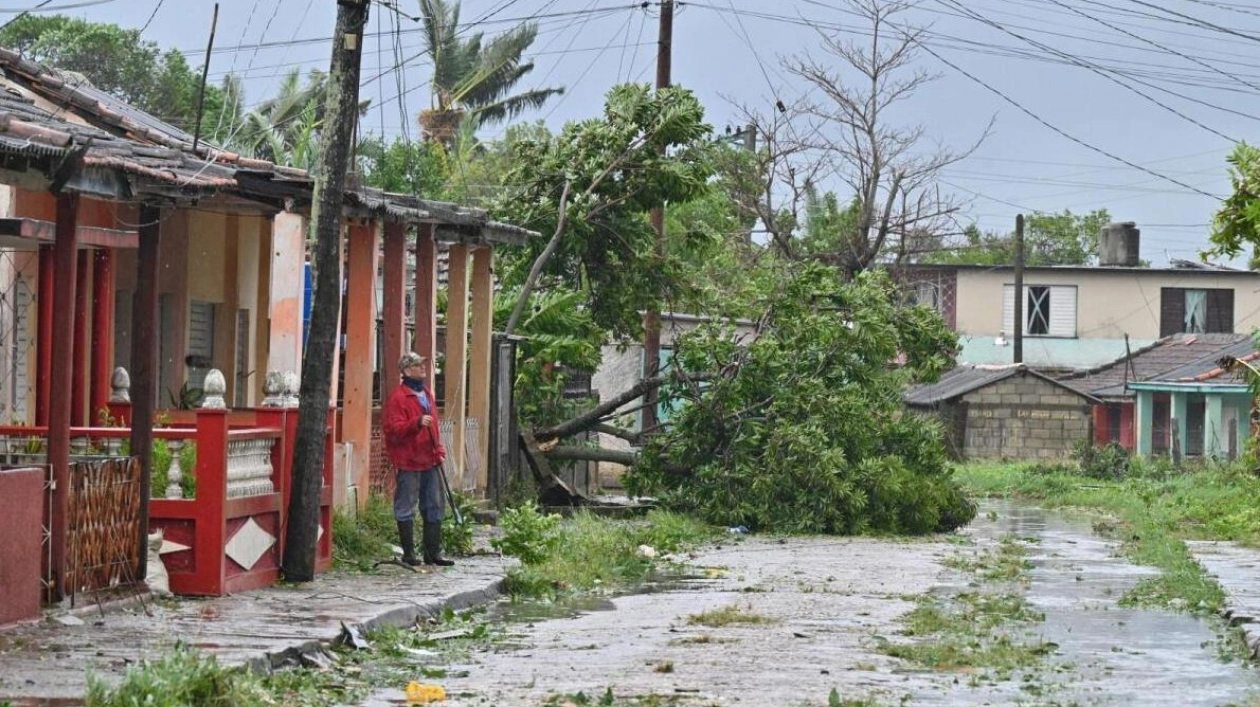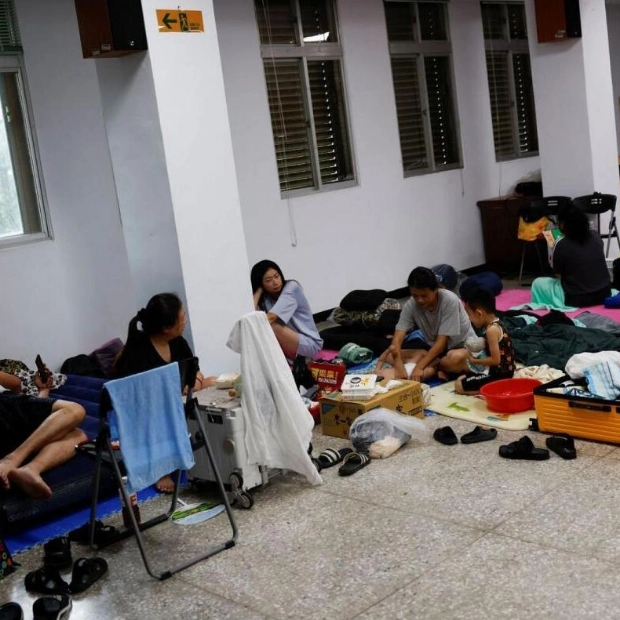A man steps out of his house as the eye of Hurricane Rafael passes over Pueblo Candelaria, Artemisa Province, 65 km west of Havana, on November 6, 2024. – AFP
Hurricane Rafael plunged all of Cuba into darkness on Wednesday as it tore through the economically struggling island, which was already grappling with a recent blackout and the aftermath of a previous deadly storm. Rafael intensified into a major Category 3 hurricane before making landfall on the Caribbean island, home to 10 million people. It struck in western Artemisa province, east of Playa Majana beach, around 2115 GMT, according to the US National Hurricane Center (NHC). The agency reported that Rafael swept across the island in two and a half hours before weakening as it entered the Gulf of Mexico. US meteorologists had issued warnings of a 'life-threatening storm surge' and flash flooding.
The Union Electrica national power company attributed 'strong winds' caused by Rafael to 'the shutdown of the national electricity system,' in a post on X. Nine of Cuba's 15 provinces, including Havana, were placed on storm alert. In Candelaria, a town severely affected in Artemisa province, gusting winds brought down tree branches and left debris scattered across the streets. Over 70,000 people were evacuated from their homes in Artemisa and neighboring Pinar del Rio province, the island's westernmost tip. In Havana, where two million people reside, the streets were nearly deserted: businesses were closed, several gas stations had their fuel pumps removed, and transport services were halted.
'I am desperate, I am homeless, the roof is gone and I don't know what I'm going to do,' Marta Leon Castro, 57, told AFP. At least five families in her neighborhood had lost all or part of their roofs. The state newspaper Granma reported that airports in the western part of the country, including in Havana and the resort town of Varadero, had been temporarily closed due to the storm. A tropical storm warning is in effect in the Florida Keys.
The storm added to Cuba's woes just two weeks after the island was left without power for four days due to the failure of its largest power plant and a shortage of fuel to generate electricity. Cuba has been enduring hours-long power cuts for months, a symptom of the worst economic crisis since the collapse of the Soviet Union, a crucial ally and financial supporter, in the early 1990s. Last month's blackout, which took several days to resolve, coincided with the passage of Hurricane Oscar, which claimed eight lives in the country.
The office of Cuban President Miguel Diaz-Canel announced on Tuesday that it was mobilizing the military to assist in the storm response. 'We have activated the National Defense Council to provide the maximum attention to the passage of Hurricane Rafael,' Diaz-Canel said in a post on X. 'Measures have been taken in each place to protect our people and material resources. As we have always done since the revolution, we will overcome this situation.'
Ahead of the storm, state television showed workers clearing drains, collecting garbage, and trimming trees. In the village of Alquizar, about 50 kilometers (30 miles) southwest of Havana, Liset Herrera, 57, said Wednesday she had been unable to follow the news about Rafael 'because there is no electricity.' Further south, in the coastal village of Ganimar, Marisol Valle, a 63-year-old farmer, returned home briefly to gather some belongings before the water reached her home near the sea. 'There didn't appear to be a soul left' after the villagers had been evacuated, she said.
Source link: https://www.khaleejtimes.com






